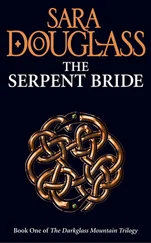They waited for some time after his last breath. Making sure.
They waited until the Cleft closed of its own accord, tired of waiting for the incantation that would have fed it.
They waited until the boy at their head leaned down and retrieved the key that hung from the dead friar’s belt.
They waited until the curse of the Nameless Day was past.
“Hail our freedom!” he cried, and then burst into laughter. “We are freed of the angels’ curse. Freed into life !”
And he thrust the key nightward in an obscene gesture towards Heaven.
It was a cold night.
Worse, it was the most feared time of year, for all knew that during the winter solstice the worlds of mankind and demon touched and a passage between them became possible. In ancient times the people had called this day and night period the Nameless Day, for to name it would only have been to give it power. Even though the people now had the word of God to comfort them, they remembered the beliefs of their ancestors, and each year feared that this Nameless Day might witness the escape of Satan’s imps into their world.
The villagers of Asterladen—those the pestilence had spared—huddled about a roaring fire inside the church. It was the only stone building in the village, and the only building with stout doors which the villagers could lock securely.
It was the safest place they could find, and the only sound which could comfort them was the murmured prayers of their parish priest.
Rainard, his wife Aude, and their infant daughter were particularly unlucky. That afternoon they had remained behind in the fields when the other villagers left, trying to discover the brooch that Aude had dropped in the mud.
It was her only piece of finery, a simple brooch made of worn bronze which had been passed down through her family for generations, and Aude was singularly proud of it. Normally she would not have worn it out to the fields, but there was to be a field dance that afternoon, and the lord had promised ale, and Aude wanted to look her best. Despite her age and her many years spent childbearing, Aude was a vain creature and proud of her looks. But between the dancing and the ale, the brooch had somehow slipped from her breast to be trodden down into the earth. She and Rainard—he berating her the entire time for her foolishness in wearing her only piece of jewellery into the field even for a Yuletide dance—had searched for hours, but the brooch was nowhere to be found.
Too late they realised the onset of dusk, and the absence of every other soul.
They hurried back to the village, breathless and fearful, and had beaten on the doors of the church until their fists were bruised and bloody.
But the priest had called them demons, and the villagers safe inside the church had screamed and refused to believe that the voices of their well-known friends were human at all.
So Rainard and Aude and their infant daughter, whom Aude had left swaddled and safe in their cottage while they were out in the fields, had to survive the night on their own.
Rainard built up a good fire in the central hearth of their cottage, and he and his wife huddled as close to it as they could, listening all the while to the moans and cries in the wind outside.
“There’ll be no harm,” Aude muttered, convincing neither her husband nor herself. She threw a concerned glance to her daughter, lying asleep in her cradle.
“We would be safe if not for your cursed trinket,” Rainard said.
Aude bared her yellowing teeth, but said nothing. She grieved deeply for her lost brooch, and wondered if somehow Rainard had been involved in its loss.
What if he had seized it in order to sell it next market day in Nuremberg? Like as not he would squander her money on a new couplet of pigs, or some such! Yes, perhaps he had it even now, tucked away in some—
There was a sudden noise on the wind, the sound of a distant door being forced open, and then of feet scuffling past the back wall of their cottage.
Some of the feet clicked, as if they were clawed.
“Rainard!” Aude squeaked, and leapt into her husband’s arms.
He shoved her to one side, and seized an axe he had to the ready.
More feet scampered past, bolder now, and the couple thought they heard the sound of three or four more doors in neighbouring cottages being forced open.
“ Rainard! ” Aude screamed, grabbing at his arm.
And then the door of their hovel squeaked and fell open.
Rainard and Aude stared, not believing their eyes.
A child, a boy, stood there. He was weeping, and covered with dirt and abrasions.
Nonetheless, he was the most beautiful child the peasants had ever seen.
“Who are you?” Rainard said, wondering how the child had escaped the prowling demons.
The boy gulped, and began to cry. “I’m lost,” he eventually said.
Rainard and Aude looked at each other. They’d heard tales of these waifs, orphaned by the pestilence, turned out of their homes by neighbours who thought the children harboured pestilence themselves.
But although this boy was cold and dirty, he was also obviously healthy. His eyes shone clear and bright, and his skin, if dirty, was not feverish.
“What is your name?” Aude said.
“I have no name,” the boy said.
“Then where are your parents?” Rainard said.
“My mam is dead, and my father deserted us years ago,” the boy said. “Before I was born. I know not where he is. Please, I am hungry. Will you feed me?”
There was a shuffling behind him, and two girls, perhaps three and four respectively, silently joined the boy.
“How many of you are there?” Rainard asked.
“Us, and two more, both girls,” said the boy. “Please, we have all lost our parents, and are hungry. Will you feed us?”
Rainard and Aude shared a look. They were poor and had barely enough to feed themselves, but they also had souls, and cared deeply for children. God knew there were few enough left in this time of pestilence.
“We’ll take you,” Rainard said, pointing to the boy, “and one of the girls. The others can find homes soon enough with some of the other families.”
The boy smiled, his face almost angelic. “I do thank you,” he said.
He moved over to the cradle, and both Rainard and Aude stiffened.
But the boy did nothing more than reach in and gently touch the sleeping girl’s forehead. “She will lead a charmed life,” he said.
Over that night and the next two days twelve villages in the region north of Nuremberg found themselves sheltering hungry orphans. No one was particularly puzzled by the appearance of the children: communication between villages was poor, and there was no one to learn of the somewhat surprising number of hungry, soulful-looking children who appeared at doors asking for shelter in the time of the Nativity in the year of the black pestilence.
This was a time of unheard-of disease and death, and there must surely be orphaned children wandering about all over the land.
All the children were taken in and nourished, and loved, and raised. None of these children bit the hands that fed them; to these work-worn hands they gave back love and gratefulness and good works.
All of these children eventually left their adopted homes to lead particularly bounteous lives.
“Margrett, my sweetest Margrett! I must goe!
most dere to mee that neuer may be soo;
as Fortune willes, I cannott itt deny.”
“ then know thy loue, thy Margrett, shee must dye. ”
A Jigge (for Margrett)
Medieval English ballad
The Friday after Plough Monday
In the forty-ninth year of the reign of Edward III
Читать дальше












